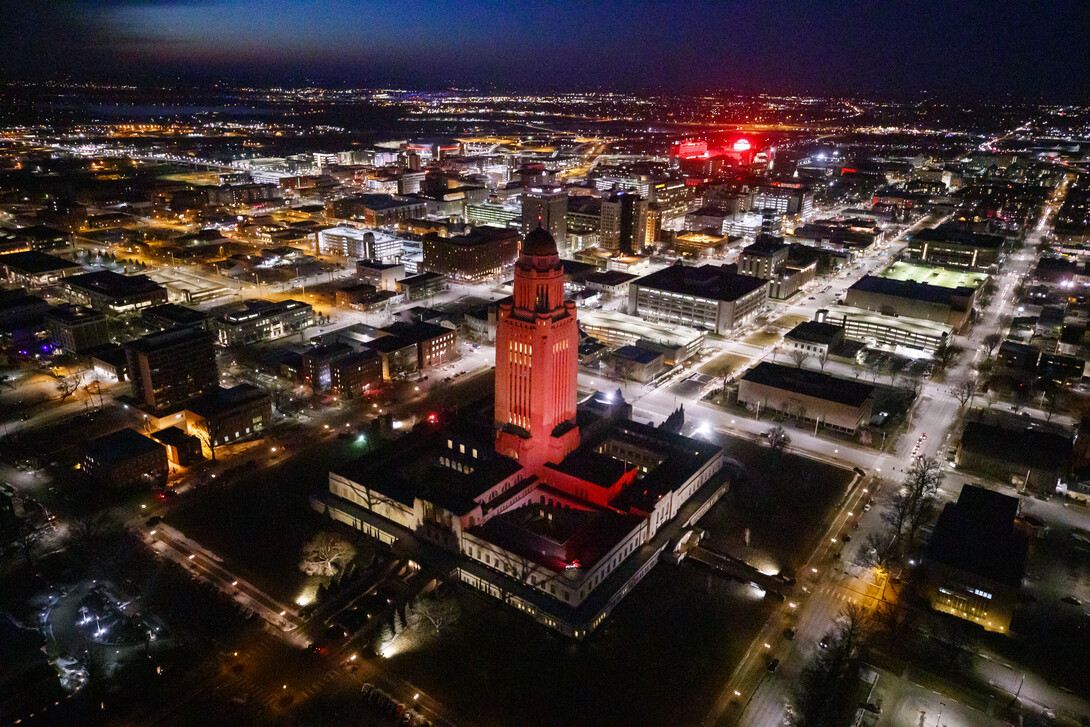
With a wide margin of support, the Nebraska Legislature on April 20 gave final approval to the state’s two-year budget package and extended a partnership that addresses building maintenance issues across the University of Nebraska-system.
The deferred maintenance proposal (LB384) extends an existing agreement through 2062, providing state funding to be matched dollar-for-dollar by the university to address an estimated $800 million in facility repairs.
In an initial plan through 2025, University of Nebraska–Lincoln leaders are aiming to complete $216 million in building upgrades statewide — from multiple projects on campus to Nebraska Extension facilities within communities.
“We are grateful for the tremendous support from our state senators and their commitment to our long-term capital renewal plan,” Chancellor Ronnie Green said. “This is a vitally important investment that will benefit generations of Husker students, researchers and instructors.”
Critical projects in the University of Nebraska–Lincoln’s initial five-year schedule include a new home for the Glenn Korff School of Music; renewal of the Neihardt Hall complex; renovation of Pershing Military and Naval Science Building, Architecture, Andrews, Bessey and Kimball Recital halls; and updates to the core systems serving the main galleries of the University of Nebraska State Museum.
The NU system includes more than 900 buildings across its four universities. The University of Nebraska–Lincoln — the flagship institution of the NU system — accounts for nearly 73% (650) of those 900 buildings.
The overall NU system building tally represents 70% of the State of Nebraska’s total building assets. Further, more than a third of all NU-system buildings are 50 years or older and many require significant upgrades to make them suited for 21st-century teaching and learning.
The deferred maintenance legislation was introduced by Sen. John Stinner, chairman of the Appropriations Committee. Ted Carter, president of the NU system, praised Stinner for his leadership in shepherding the proposal through the legislative process, noting that by capitalizing on current historically low interest rates, the deferred maintenance legislation will yield significant savings for Nebraska taxpayers over its 40-year duration.
“The Legislature’s approval of LB384 represents a visionary approach to caring for valuable university facilities,” Carter said. “Not only does this package save Nebraska taxpayers $1.5 billion, but it puts our university on a path to self-sustainability in keeping our buildings safe and up-to-date for students, faculty and staff. That sets Nebraska apart on the national stage.
“We thank Chairman Stinner for his forward-thinking leadership in stewarding this proposal, and the Appropriations Committee and full Legislature for their strong show of support. With Chairman Stinner’s leadership, senators have delivered a major win to Nebraskans.”
The Legislature also approved the 2021-23 state budget package, including funding for the University of Nebraska as well as the Nebraska Career Scholarships, a new state program providing scholarships for students in high-need areas.
NU sought 2% increases in state funding each of the next two years, a modest request acknowledging fiscal challenges related to COVID-19. The funds will help cover salary increases for faculty and staff; other expenses incurred by the university during the biennium will be funded through an ongoing budget reallocation process.
The Legislature’s decision to fully fund the university’s request clears the way for a two-year, across-the-board tuition increase across the NU system.
Both the state budget package and deferred maintenance legislation are now on Gov. Pete Ricketts’ desk for consideration. The governor has until April 26 to approve, veto or line-item veto the bills.







